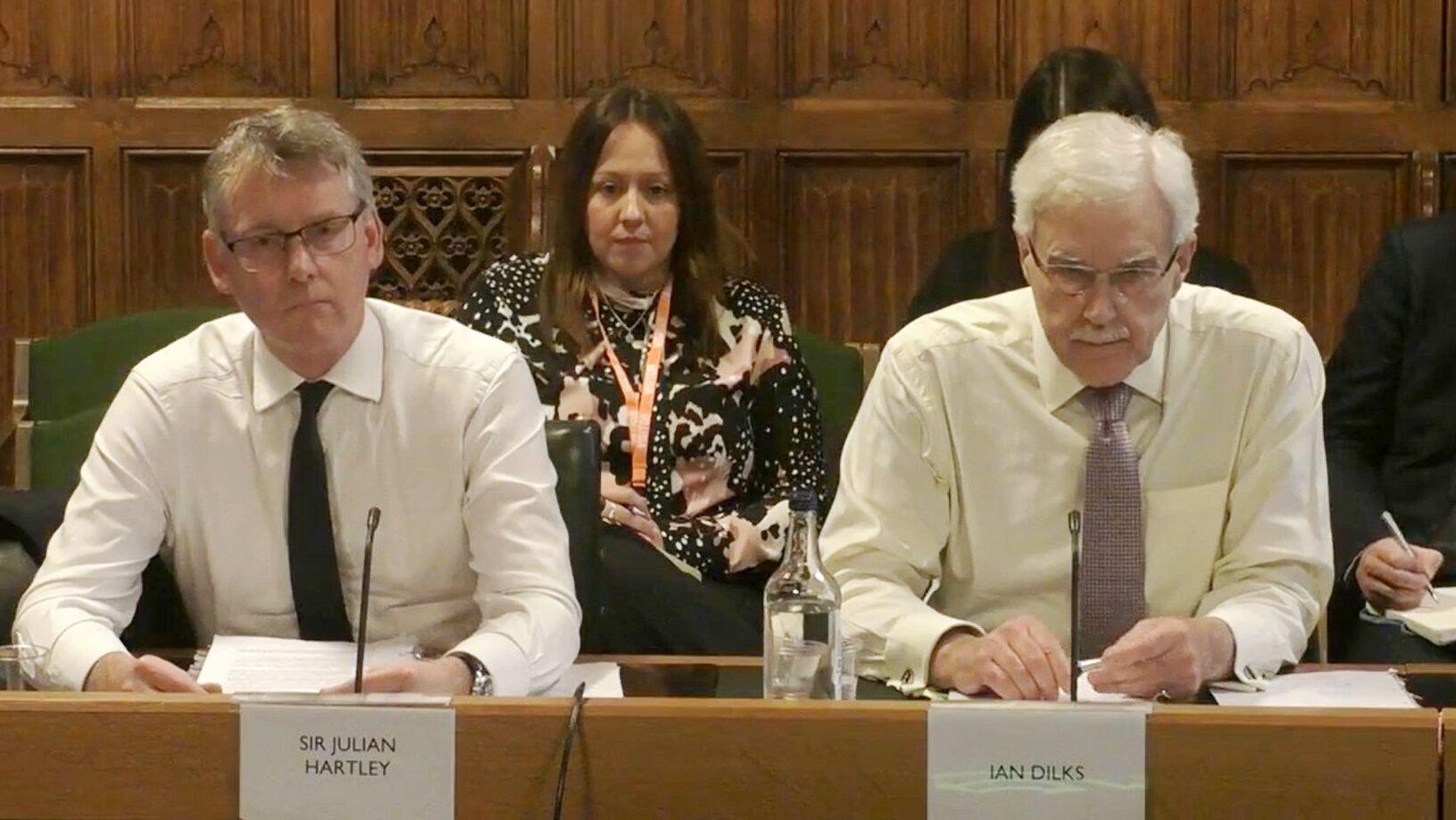How do we make flexible working work in the NHS?
Workers increasingly see flexible working as the norm, but it has proved notoriously hard to implement in the NHS. We assembled a panel of experts to discuss why flexible working matters, and how the NHS can overcome the obstacles to offer people the flexible and attractive careers they want.

The Panel
- Jon Restell (JR): chief executive of MiP
- Aliya Rehman (AR): programme lead for staff experience, NHS Employers
- Clare Bannister (CB): North East Ambulance Service and vice chair of MiP
- Helga Pile (HP): deputy head of health, UNISON
- Catherine Smith (CS): Flexible working lead, United Lincolnshire Hospitals NHS Trust
Jon Restell / In the last two years, I’ve struggled without the stimulus and structure of the workplace, but I’ve also had fantastic gifts, particularly more time with my daughter. It’s a flexibility that’s been thrust upon me, but which I now don’t want to lose. What are your personal experiences of flexible working?
Aliya Rehman / At NHS Employers, we’ve had a fabulous, agile flexible working policy since before the pandemic. It gives you the freedom to have a conversations with your manager about finding a work-life balance that works for you, knowing that you won’t have a red mark against you. I know we’re very fortunate to work for a responsive organisation that sees the challenges for people working for the NHS.
Clare Bannister / The pandemic has seen a change in how we work in the NHS. We’ve condensed into two years what would’ve normally taken five or ten. Many services went very quickly to a home working model, which caused a few issues: some people just can’t work from home, and quite a few staff experienced mental health problems as a result of the isolation and the pressure the service was under. There was also a touch of resentment about a ‘hidden workforce’ from those staff who had to be physically in the workplace.
But I’m also a massive believer in flexible working. We’ve rolled out a remote working kit for clinicians; it’s been an expensive project and it doesn’t suit everybody, but we wholeheartedly support it and lots of staff have benefited from it. Our workforce is spread so thinly—if we don’t offer flexible working, the private sector will.
Helga Pile / I had a short period of part-time working when my daughter was younger and then I had a period on full-time compressed hours which worked well for a time. You learn things about yourself when you’re forced to work in a particular pattern. I hated homeworking and don’t want to go back to it. People’s needs change and policies need to be dynamic to reflect that.
Catherine Smith / I moved location and took a demotion for six months to get what I wanted. If something’s really important to you, you’ll do whatever it takes to get it, even leaving your organisation. My previous employer was very flexible, and even let me work from Greece once so I could go away with my husband and kids for a week. It was really refreshing to have that level of trust.
We should be measured on output rather than the time that we’re available. But I appreciate that’s more challenging with a clinical role—every type of flexible working will not suit every role.
JR: Why is flexible working so important to the NHS? What is the risk to services and quality of care if we don’t get this right?
AR/ If we ignore it, there will be significant consequences for our workforce. 75% of employers say flexible working has a positive effect on retention, and 73% say it improves motivation. Supply and staff experience are intrinsically linked, and flexible working is a massive enabler of [good] staff experience. We can’t afford to lose staff members because we can’t find a way to accommodate flexible working requests that are critical to them.
HP/ Alongside pay, flexible working could really make a difference, particularly when so many people are thinking about leaving. Making the NHS a career rather than a job destination could really turn around the staffing situation. We can offer fantastic career pathways, but if we don’t get flexible working right, people can’t take them.
CS/ We have data showing that 92% of younger people want to work flexibly. They don’t see it as a benefit, they expect it as standard. That’s your entry level—your graduates, your apprentices. Not offering flexible working, means we’re not attractive to them. Our pay scales limit what we can go to market with, but we can make flexibility a really unique selling point when we recruit.
CB/ I do think the private sector are better at it. They can mobilise a new recruit working remotely much quicker than we can. Many staff have re‑evaluated their whole work/life balance in the last two years. Clinicians, in particular, are coming in their droves to areas where we can offer homeworking, which is very sad in terms of loss of skill to the clinical workforce.
When, where and how: what is flexible working?
NHS England defines flexible working as “an arrangement which supports an individual to have greater choice in when, where and how they work.” Flexible working arrangements can be informal (agreed with your line manager when needed) or formal (part of your contract of employment). Example arrangements include:
- Flexible start, finish and break times
- Homeworking or remote working (including hybrid home/office working)
- Fixed working hours/shifts
- School term-time only working
- Compressed working hours (e.g. nine day fortnights)
- Part-time working hours
- Job sharing
- Split shifts/working sessions (e.g. morning and evening)
- Time off in lieu (TOIL)
- Unlimited annual leave (unpaid beyond your normal annual leave allowance)
- Sabbaticals and career breaks
See NHS England’s guidance note, Flexible working: raising the standards for the NHS, for more information.
JR: We see that in management too, with operational managers looking for a ‘safer’ berth somewhere else. But why aren’t we making their jobs more doable and sustainable rather than just finding escape hatches for people? How do we actually define flexible working? What does it mean for your staff or your members?
AR/ For me, flexible working is giving people greater choice about their work/life balance: where they work, when they work and even how they work. If we want to embed this culture change, we have to view it like that rather than as specific schemes—compressed hours, flexitime or whatever.
HP/ Some people want certainty about their hours, but others want to change their hours according to what else is going on. The service has fluctuating needs, so surely we can accommodate that in a substantive contract so people don’t have to go onto bank or agency type arrangements.
CS/ We’ve adopted the NHS England definition (see page 15), which covers where, when and how. It definitely suits our needs. While not every type of flexible working is suitable for every role, for every role there some type flexible working that you can do.
Some senior managers feared that our new policy would cause staff shortages because everyone would want to work fewer hours. But set patterns—shifts or the days people work—came out top in the data. So, actually, it’s predictability rather than reduced hours that people want.
JR/ It’s not a traditional understanding of flexible working, but in our members’ survey one of the strongest messages was: don’t expect me to work every weekend or to work on holiday.
CB/ Yes, I’ve never experienced a backlash like this – to the number of additional hours everybody is working. I have a mutual agreement where I work part-time and get paid part-time, but can claim for what I do on my day off. So I can clear my diary but actually do five hours plus catching up without being on Teams all day. It’s the only way I can cope at the moment.
JR/ This does feel like an opportunity for the system to put some real energy behind flexible working. But the intense pressures on the service will make it hard for managers to offer flexibility or even think about it. What do you see as the main opportunities and barriers for organisations, staff and managers?
AR/ We need to broaden the conversation because flexibility isn’t going to solve all our retention problems. The pandemic has made us realise that staff wellbeing and flexibility aren’t just nice-to-do things, they’re critical issues that are really going to make a difference to our workforce and actually save lives. The new flexible working provisions [in Agenda for Change] have given us a contractual infrastructure, but the challenge is changing the culture so flexible working is seen as the normal approach.
It’s early days, but I also think that ICSs can create fabulous opportunities for flexible working, where people can work together across organisations.
JR/ I’m intrigued by the potential for organisations to pool their available staff within an ICS. I know ICSs are trumpeted as the answer to everything, but that sounds like a strong, crunchy thing they can do early on.
HP/ Job design is a difficult challenge. We need a more creative approach than just saying “our standard shift is 12 hours but as an aberration we’ll offer a six-hour shift”. But I know that’s difficult now, with the sheer effort everyone’s making to keep the show on the road.
Then there are ‘received wisdoms’ like “you can’t get above Band 6 working less than 20 hours”, and things like the midwifery continuity of care model, where people are told they must work a minimum of X hours. Service leaders need to be proactive in ensuring those [attitudes] don’t get built in.
CS/ I think job design is our next big mountain. It might be efficient from a personnel viewpoint for our nursing colleagues to work long nights and long days, but if it’s not good for our patients and it’s not good for our people, why do we have shifts like that? It’s about challenging those perceptions. We’re not there yet, but watch this space!
The other issue is around management. We’ve got 93% approval for our flexible working policy, but our exit survey shows the number one reason for people leaving is work/life balance. When we look at the anecdotal comments, there’s usually a link with manager delivery of the policy.
CB/ We need to give managers the support to be creative, certainly within organisations like the ambulance service. So much is discretionary that I’ve found it to be discriminatory as well. Some managers need to understand that if we don’t change the culture, we will lose this workforce—and we just can’t afford to do that.
JR/ Yes, one of our management principles is being consistent, but for some managers consistency is just saying “no” to everyone.
CS/ Trying to treat everyone the same for equality reasons can become a barrier to doing anything about flexible working requests. I hear the word ‘precedent’ all the time, but I say, “No, you treat this one person based on their needs at this particular time.”
I think the escalation procedure for flexible working requests [see page 18] really helps. It means there’s a review by someone with a different perspective, and allows people to look at different options.
Your new flexible working rights
In September 2021, NHS unions and employers agreed new terms for Agenda for Change staff which extend your existing legal rights to request flexible working. The new provisions aim to help you find a flexible working solution (including homeworking) that works for you:
- the right to request flexible working from your first day of employment, including during probationary periods
- the right to make as many flexible working requests as you like
- the right to make requests and have them considered regardless of your reasons
- a three-month deadline for employers to respond to requests
- an “escalation stage” for requests that have been turned down (see below)
- for disabled staff, the right for flexible working to be considered as a ‘reasonable adjustment’
- a duty for employers to facilitate flexible working requests “wherever possible” for staff returning from maternity, adoption or shared parental leave
- a duty for employers to encourage regular discussions about flexible working without waiting for staff to make a formal request
The ‘escalation’ stage
If your request is turned down, your manager must refer your request for wider review and discussion within your organisation. This should include considering alternative solutions and opportunities to work flexibly elsewhere. If your request is still declined, you must be given written reasons and you can consider whether to appeal.
Further advice
- To find out more, read the Flexible Working FAQs published by the NHS Staff Council: mip.social/fw-faqs
- To learn how to make a flexible working request, see the Flexible Working Flowchart
- If you feel uncomfortable about making a formal request to your manager or feel your request had been unreasonably turned down, contact MiP for advice.
JR: What are the next steps for us as practitioners and partners? In my experience, what works for nearly every manager is examples of successful flexible working elsewhere—it gives them confidence to do it and reassurance that the service will thrive.
AR/ Awareness raising and education are really important, but we need to start implementing this in practice, and to share success stories and learning that inspire others to take on this way of working.
CS/ In the shorter term, we really need to get out there and promote our new policy. In the longer term, the job design question is key, but that means some challenging conversations with stakeholders who don’t necessarily want to let go of something they’re used to. And then we’ve got to look at how we enable managers to say ‘yes’. We need to build trust—we have employees who don’t trust us to do right by them and we have managers who don’t trust that we’re going to support them in the process.
HP/ As well as good practice, we need to promote real-life examples to staff who aren’t coming forward and flexible working needs to be built into policy and service redesign from the top down. So, whenever we hear about new initiatives, we also hear about how they will be delivered through flexible working.
JR/ I was really struck by what Clare said earlier about managers rethinking what they will accept. That’s an opportunity, but it could be a very dangerous moment for organisations if they don’t respond to what their managers are saying.
So, we’ve run over because the conversation was so good! Thank you so much for your contributions.
Your flexible working experiences
- Eleanor: “The job isn’t the only thing that matters to people”
- Hazel: “You can still have a great job and keep growing”
Flexible working in the NHS isn’t always easy, so managers and staff need to know what works. MiP wants to collect as many examples of good practice and effective flexible working solutions as possible. Tell us about any pitfalls or problems you encountered too, or even better—how you overcame them!
Send your stories to: info@miphealth.org.uk.
Related News
-

Regulating the managers: more questions than answers
The Labour government’s plans for regulating NHS managers are still shrouded in mystery, and the three options on the table each have their pros and cons. Rhys McKenzie weighs up the choices and gauges the views of MiP members on the best way forward.
-

The inspector falls: why the CQC needs a fresh start
After years of chaos, the Care Quality Commission urgently needs to rebuild trust and credibility with the public and the services it regulates. What needs to change and what are the priorities for new boss Sir Julian Hartley? Alison Moore reports.
-

Voice, value and vision: what analysts need from the NHS
Data analysts play a vital role in an NHS which is increasingly data-driven and focused on public health trends. But the NHS faces fierce competition for skilled analysts and many feel the health service fails to value them or fully use their talents. Alison Moore reports.

